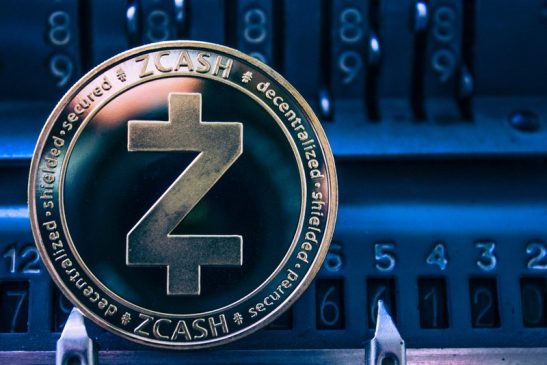Decrypt’s Tim Copeland attended a developer conference hosted by the Electric Coin Company in Croatia. He reports that the company is considering the most significant possible changes to its product, Zcash.
#2 Privacy Coin Considering Massive Development Pivot
If you’re studying crypto, you may have heard of Zcash. It’s a “privacy coin” which allows users to guard their transaction details from the public, and currently the #2 coin in its class by market capitalization (after Monero). Zcash developers want the cryptocurrency to service as many as 10 billion people in the coming three decades, Copeland reports, and they’re willing to do just about anything to get there. One of the major considerations they’re currently undertaking is whether or not (and how) to implement “sharding,” a scaling technique advanced by Ethereum. Adamant Capital analyst and Bitcoin commentator Tuur Demeester believes this is an admission on ECC’s part that their original design was never scalable. Zcash is essentially the Zerocoin protocol inserted into Bitcoin – as an oversimplification. Important aspects spending funds differ. Zcash has certain limitations inherited from Bitcoin and its initial design, which the company would like to solve a bit more creatively than simply increasing the size of blocks. https://twitter.com/TuurDemeester/status/1142759745339703296 Once again, Zcash is building on the shoulders of giants, following important aspects of Ethereum’s developmental roadmap. The company says that they will have to make changes so drastic that an entirely new blockchain design will be required.
Zerocoin Protocol-Based Developers Get Creative
Presumably, this future hardfork will credit existing holders. But, new designs necessarily entail new vulnerabilities. Not so long ago, a bug was found in the Zerocoin protocol which enabled unlimited inflation https://cryptoslate.com/zerocoin-exploit-found-zcoin-attacked-other-privacy-coins-at-risk/. The CryptoNight protocol, which underpins Monero, once saw a very similar bug emerge in Bytecoin, it’s first implementation. Over 80% of its supply was created through an exploit in the first year. No one knows who, but a single user likely holds the majority of all BCN. Bitcoin has also had problems with bugs potentially causing inflation. In a parallel world, Zcoin developers are integrating recent innovations from Dash including ChainLocks, an anti-51% measure just introduced by Dash. Using the Masternode system, Dash is essentially able to lock the first-seen block and permanently prevent block reorganizations that lack a super-majority of support from Masternodes and miners. In a yet-unpublished interview with CCN, Dash Core CEO Ryan Taylor told CCN that privacy is far from the crypto’s primary focus at this point. While Dash long ago introduced in-wallet coin-mixing, a feature that significantly enhances privacy, Dash, according to Taylor, is focused on creating the best possible user experience.
Will The Zcash Corporate Subsidy Be Extended?
A widely held view is that the next frontier after “scalability” – a blockchain’s ability to serve masses of people – is privacy. Bitcoin maximalists resent the idea that Bitcoin may be lacking in privacy. https://twitter.com/BTCsessions/status/1142855429908647937 Tuur Demeester’s final point about the ECC subsidy comes from the last paragraph of Copeland’s article. Copeland writes:
“Wilcox said that development and governance need to be funded. Currently, the ECC and the Zcash Foundation are funded through mining rewards. These are slated to stop in 2020. He argued that continued funding is necessary for development, but failed to specify how that might work.”
Thus, ECC executives are leaving open the door for extending their subsidy, which is provided programmatically, in exchange for fully rebuilding their product.




